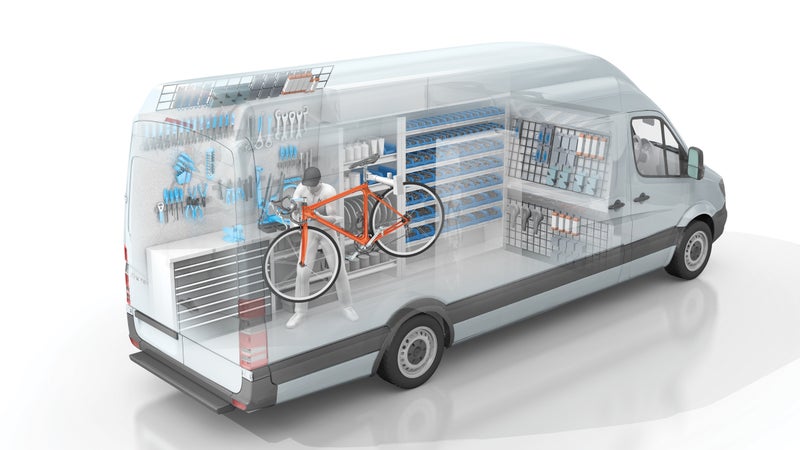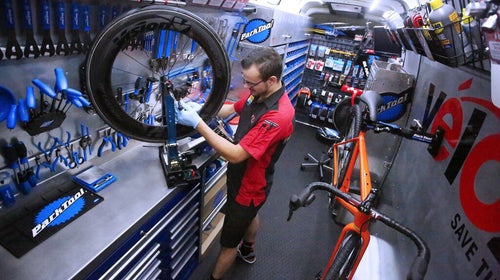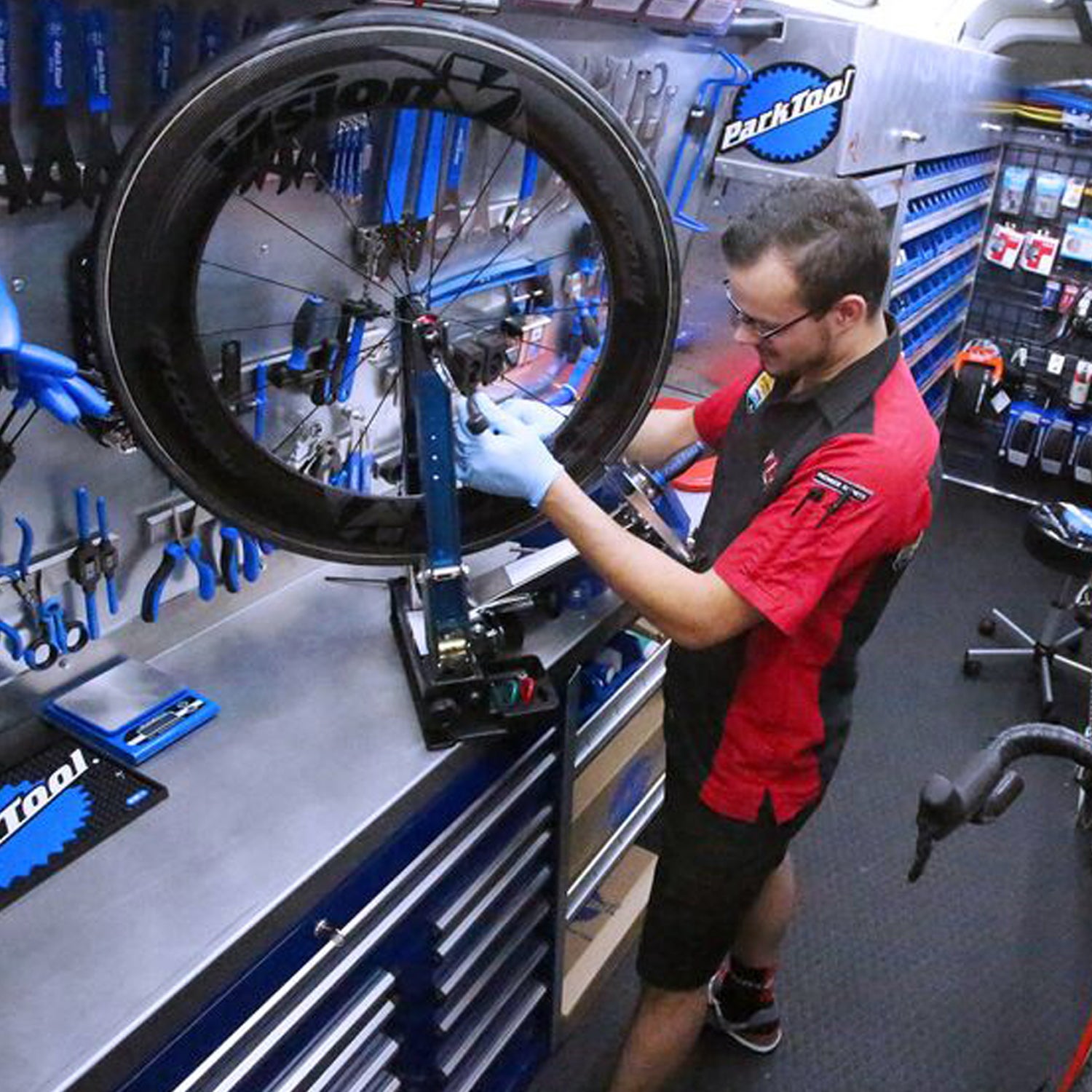Davide Xausa was fed up with bike shops. He had two toddlers and a full-time job in Vancouver, British Columbia, and no time to bring his rigs in to be serviced. So in late 2012, the former national-team soccer player sat down with his buddies Chris Guillemet and Boris Martin, a salesman and a bike mechanic, respectively, and hashed out a business plan.��
The result was through a fleet of Mercedes-Benz Sprinter vans. Customers make an appointment online and a Velofix van—complete with mechanic and espresso machine—shows up at their home or office. “At a certain point in your life, you start to value time more,” says Xausa. “With us, you get on your smartphone and you’re booked.”��
A handful of local bike shops across the U.S. have offered some form of we’ll-come-to-you bike repair in the past, says Pat Hus, director of the Interbike trade show. But mobile shops, he says, are “a game changer.”��
Both Velofix and its main competitor, three-year-old Beeline Bikes, based in the San Francisco Bay Area, follow a franchise model, offering mechanics across North America support—in the form of training, payment-processing software, discounted vans, and use��
of the brand name—in exchange for a one-time fee. It’s been extraordinarily successful: Velofix grew to 42 franchises in North America in 2015, and it plans to increase that number to 75 by the end of 2016. Beeline, meanwhile, has 27 franchises operating out of Mercedes and Ford vans in San Francisco, Denver, Phoenix, and other cities.��
Pete Buhl, cofounder and CEO of Beeline, says that part of his goal is to get more riders on the road. “If we can get those five bikes in the garage that haven’t seen the light of day tuned up and running, they’re back in the bike market,” he says.
But another benefit of mobile shops is that they attract people who aren’t part of the peloton—in particular, those who are either too busy or simply intimidated by the bro culture of many shops to maintain their bike. “With a truck, you’re able to go into underserved neighborhoods that don’t have a bike shop,” adds Jim Steffen, owner of Bikesmith, a shop in Memphis, Tennessee, with a mobile branch. “There are a lot of people who depend on a bike for transportation. You’re giving those people time, and you’re getting more people interested in bikes.”
While the competition may worry brick-and-mortar bike retailers, which have dropped in number by 39 percent since 2000, online sellers see an opportunity. In July 2015, Beeline received $2.6 million in funding from investors including Backcountry.com. Soon riders will be able to buy a bike online and have it built and delivered by a mobile outfit.��
As for Velofix, Xausa says he and his partners have plans to have 450 franchises across North America in the next four years. “By 2020, we will be your local bike shop,” he says.

No Job Too Small:��Velofix mechanics have the full retinue of tools at their disposal, everything from torque wrenches to brushes made specifically for cleaning bikes.��
Well Stocked:��The van carries much of what you’d expect to find in a brick-and-mortar shop, including tubes, power meters, wheelsets, and energy bars.��
Room to Spare:��The shop floor has 100 square feet of working space. “It doesn’t feel cramped at all,” says Adam Kourakis, owner of Velofix Ottawa. “Customers tell me all the time that they forget they’re in a van.”
��


